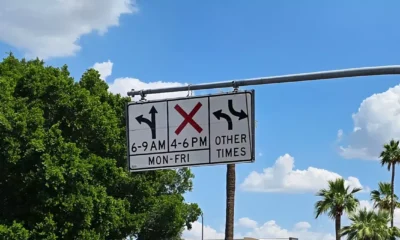border
Cochise County Voters Face Crucial Decision: All Board of Supervisors Seats Up for Grabs on Nov. 5

As Arizona gears up for the presidential and congressional elections this November, Cochise County voters will also be focusing on crucial local races, including the Board of Supervisors. This southeastern county, which shares borders with New Mexico and Sonora, Mexico, is home to approximately 125,000 residents living in rural towns such as Tombstone, Sierra Vista, Douglas, and Naco.
The Cochise County Board of Supervisors plays a key role in overseeing county government operations, akin to the functioning of boards across Arizona’s 15 counties. The board comprises three members representing the county’s districts, with Vice Chairman Tom Crosby for District 1, Chairman Ann English for District 2, and Peggy Judd for District 3. All three positions are on the ballot this year, although only Crosby is seeking reelection. Each supervisor serves a four-year term.
This election cycle features competition across the districts: Crosby faces Democrat Theresa Jane Walsh in District 1; in District 2, Democrat Joni Giacomino and Republican Kathleen Gomez are vying for the seat; and in District 3, the race includes Republican Frank Antenori, Democrat Joy Banks, and Independents Jacob Kartchner and Patricia Nyberg.
The authority of the board is defined by state law, as explained by Supervisor English. She noted that counties are “children of the Legislature,” operating under powers explicitly granted by the state. The board’s role includes setting policies and processes that county departments must adhere to, managing disputes during board meetings, and ensuring effective enforcement of state laws through budget control, primarily funded by real estate taxes.
Departments, like the sheriff’s office, may seek external funding but can only do so with board approval before submitting requests. Regular meetings allow the board to oversee county department activities and maintain relationships with federal, state, local, and even international agencies. “We establish federal relationships because we need to be there when the money is available,” English stated, emphasizing their need to advocate for essential funding for various county projects.
The board has highlighted seven priorities in its “Strategic Work Plan for 2021-2024,” which includes tackling economic development, environmental solutions, and fostering intergovernmental cooperation. A significant project on their agenda is the proposed construction of a commercial port of entry five miles west of Douglas. Currently, the area’s second-largest port shares capacity with various types of traffic, complicating logistics for commercial vehicles.
English expressed optimism that the new commercial port will enhance transportation efficiencies and ultimately benefit both nations’ economies, stressing Mexico’s status as Arizona’s largest trading partner. “This is going to benefit Douglas, Arizona, and the entire nation,” she stated. “Why would you not want that?”


















